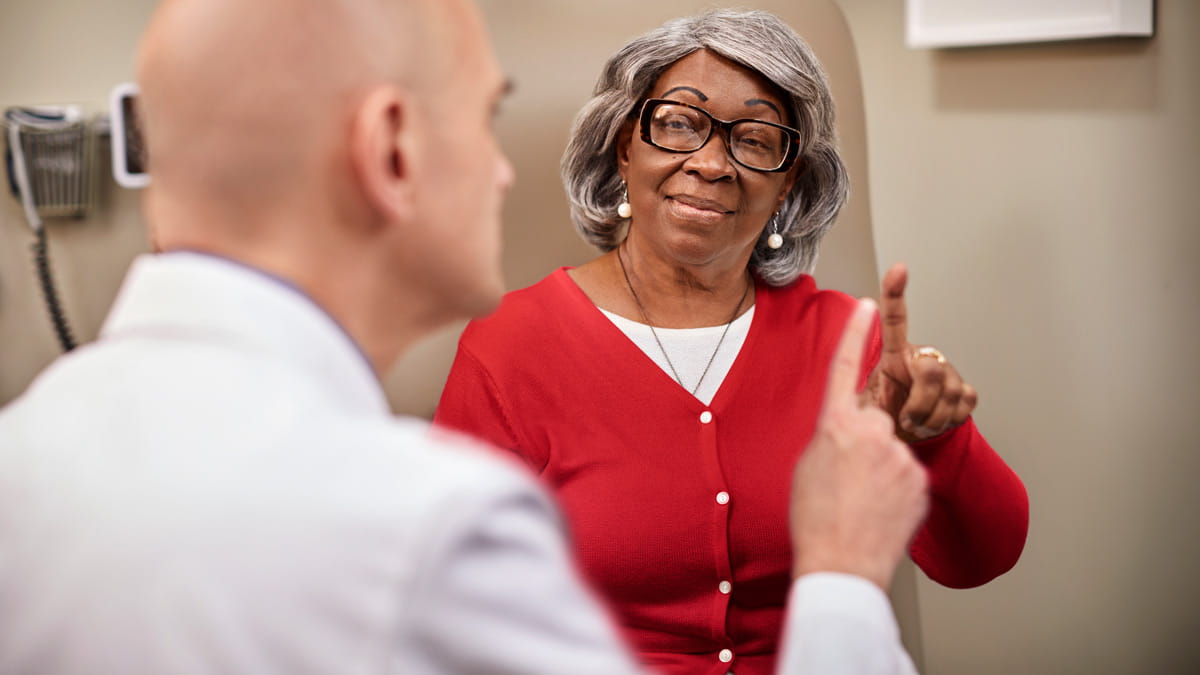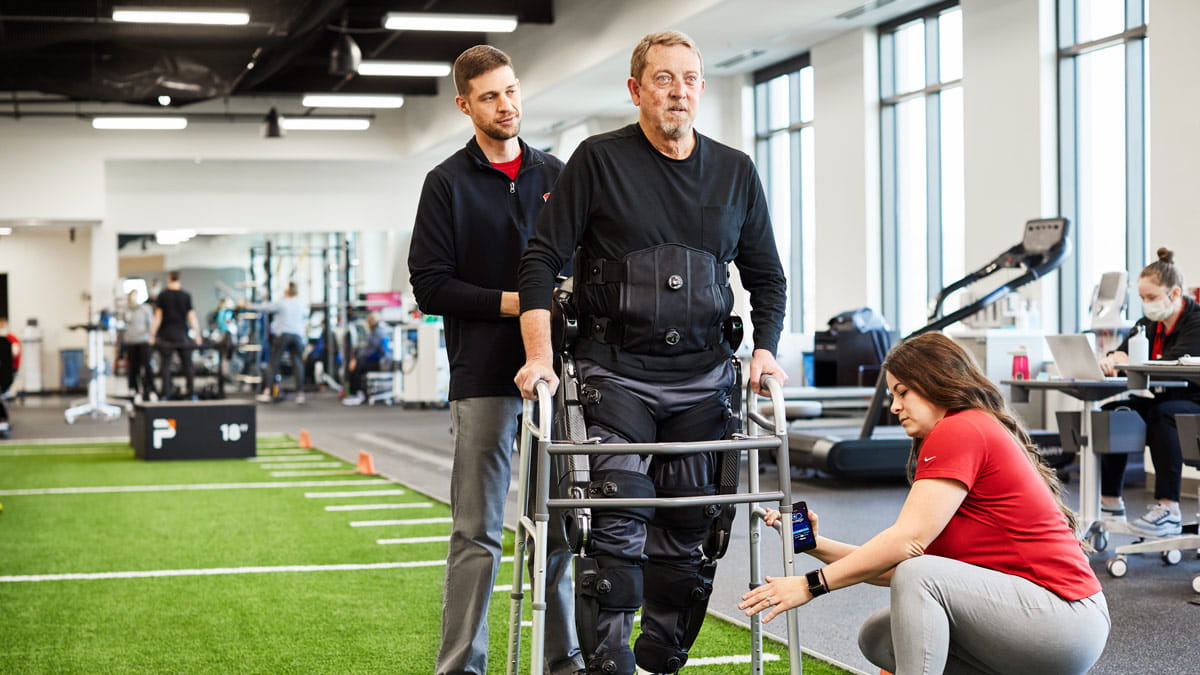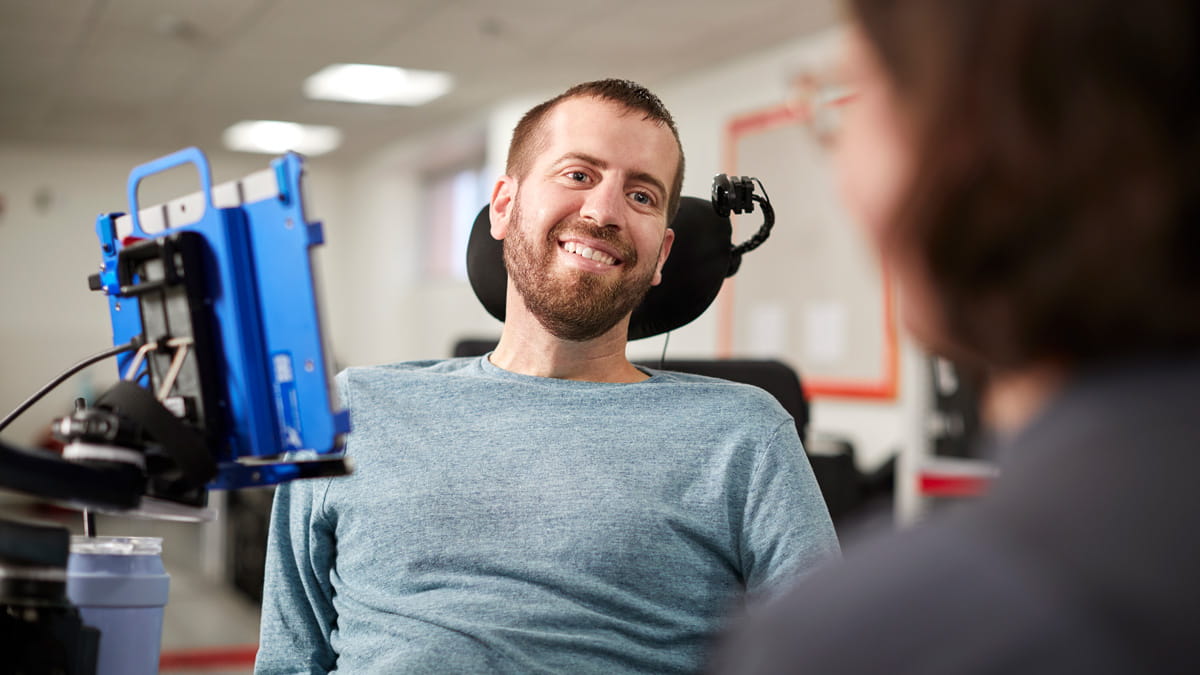Encouraging others 'not to stop living' because of their diagnosis
Patricia Culbreath, living with essential tremor

When Patricia Culbreath visits the bank, she always walks in with a smile, and always asks to see the same person.
It’s important, she says, that she deals with someone who knows her, and the challenge she has writing her signature.
“If they’re not there, I just say, ‘I’ll be back later,’” Patricia says. “That’s a lifestyle change I’ve had to make.”
The accommodation has come as her handwriting has changed with her diagnosis more than 10 years ago of essential tremor, a movement disorder that can cause rhythmic trembling of the hands, head, voice, legs or torso.
The assistant pastor of an African Methodist Episcopal Church congregation in Columbus says she also oversees a number of organizations and at times has to sign papers in front of others. Which leads to her explaining why her writing might be erratic.
“But everybody’s so sweet. They just say, ‘Pastor, go ahead, do what you need to do,’” she says.
When she recently returned to Ohio after 20 years in North Carolina, she turned to The Ohio State University Wexner Medical Center for treatment for essential tremor and evaluation for Parkinson’s disease. She’s been a strong advocate for Ohio State since the early 1990s when, as a mother of four young children, she received needed critical care for an eye injury that might have otherwise blinded her.
Patricia, 77, says putting faith in God and her health care team has helped her manage her current condition.
“I learned that there are good people I could confide in,” says Patricia, who sees neurologist Pietro Mazzoni, MD, PhD. “All my past experiences taught me that you have to trust somebody.”
“You have to have that physician who won’t put you off. Your doctor has to understand you’re going through a mental and physical and emotional experience. I know for a fact that Dr. Mazzoni was put in my life for what I’m going through for a purpose.”
Prayer, she says, and finding ways to encourage others also make a difference.
How does your condition impact your daily life?
I started having what they call central tremors around 2012, and they’ve increased over the years.
My writing...I started scribbling. There’s no better word than “scribble.” It’s affected me as a pastor because I have to write a lot. I love writing. So, I have somebody helping me now.
And at times it gets a little difficult to work with my hands in other ways. Sometimes it can be frustrating.
How do you treat your symptoms?
I take medication that helps calm it down, because, really and truly, I can’t let this stop me. I have to keep moving on.
What strategies help you cope?
I love iPhones and iPads because I can speak into them and not have to write. I can see the blessing of me being able to talk into my iPad and my iPhone. And I’ll be getting a computer soon.
There are many other assistive tools, like pencils that help with writing and devices that can make it easier to open cans and hold onto things.
And I’ve learned to calm myself down. Before, I would get upset, saying “I’ve got to do this. I’ve got to do that.” And I find that when I let myself get anxious, it’s worse. If I’ve had a busy day, I’ve learned to sit down. I pray, turn my phone off. It’s quiet. And I noticed that my handwriting doesn’t go all over the place.
What advice would you give someone newly diagnosed with Parkinson’s disease or tremor?
Go ahead and pray first. Then, seek out a specialist. Talk to your primary care provider and ask them to recommend somebody, or go online. Go to Ohio State, because the doctors there – if it’s not their specialty, they’ll put you in the right place, direct you to a doctor who deals with what’s going on with you. Recognize when your tremor started, and what you’ve done, before you got to the specialist. If you have a family member whom you trust, have them go with you to listen to the doctor and write down everything.
It’s very, very important to be involved in your health. Don’t let other people control your disease. I don’t care who the doctor is or what they say. When decisions are being made, make sure that you’re included in the decision making. If you’re uncomfortable, then you need to speak up and make sure that you know exactly what’s going on with your health, whatever the issue is.
And, I want to encourage people not to stop living because you’ve been diagnosed with something you’re not in control of. Get involved with a group that has Parkinson’s disease. You’re still living, and if you like to read or you like to write or you still have a job you can do, technology has gotten so great.



